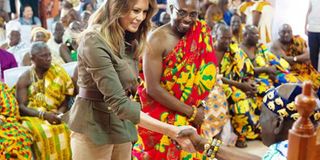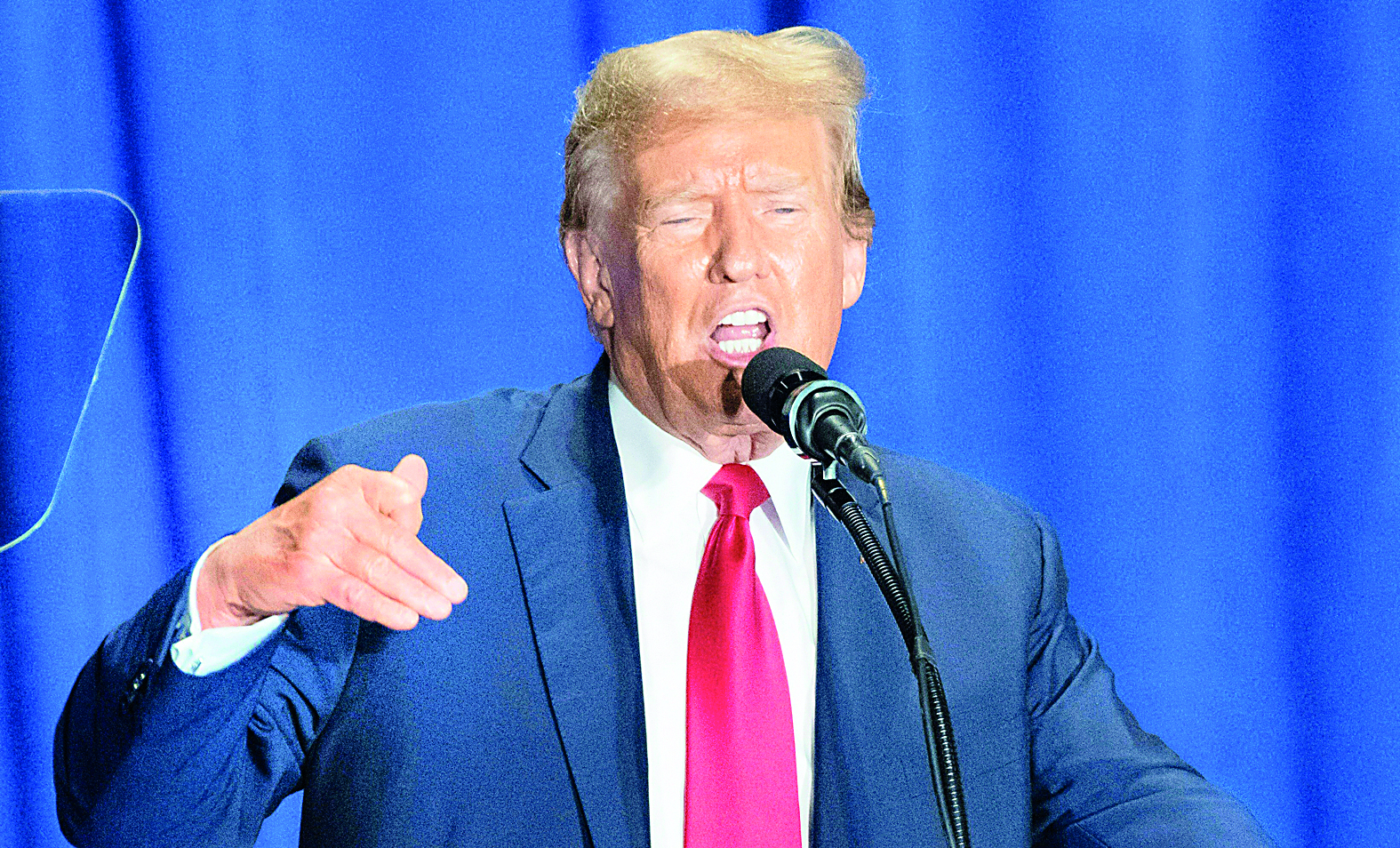Why NGOs in Africa must respect village headmen and hierarchies

Melania Trump standing and shaking hands with seated African chief during her tour of Ghana. photo |FILE
Almost every global development body, from the World Bank to small, single-issue NGOs, claims to listen to or work with “the community”. In many African countries, and particularly in rural villages, this community engagement involves meeting and consulting with chiefs.
Yet even practitioners who go to great lengths to engage with chiefs often treat “the chieftaincy” as homogeneous. In this view, chiefs are either dedicated developers with the exactly the same interests as the (equally homogenous) community, or they are barriers to development who must be educated.
But how do these chiefs or headmen view the NGOs? And how do the NGOs’ efforts hinder or help the chiefs in consolidating their own power? In a recent study I explored these questions. I examined how traditional leaders in several Malawian villages attempted to use NGOs’ presence to solidify or change their relationships with their constituents and how NGOs influenced what “development” meant to villagers.
These are important issues to consider in the context of Malawi. Small, foreign-funded NGOs dominate the country’s rural areas. The nation is one of the world’s poorest and 40% of its recurrent spending is provided by donors, often distributed through small NGOs.
These organisations maintain office in areas that are too remote for larger NGOs. They claim that their competitive advantage lies in their closeness to the community – and the village’s chieftaincy. This means liaising with the traditional authority: a leader who controls hundreds or even thousands of villages, each with their own village headmen. Traditional authorities are typically wealthy and urbane. Village headmen, on the other hand, are as poor as their constituents.
I found that the mere presence of NGOs, no matter their size or aims, inadvertently reduced the legitimacy of local village headmen, often through encouraging villagers to link development to wealth and westernisation.
Headmens’ experiences
I used the pseudonym “Vsawa” as a collective name for the villages I observed. There, two small NGOs maintained permanent offices and two others had full-time staff. These organisations were wealthy compared to the communities in which they operated and, through things like donor visits, these NGOs inadvertently implied that development was gifted into the community by (western) outsiders.
This was challenging for headmen, who often maintained their legitimacy by presenting development as occurring through communal cohesion under their leadership.
For instance, one village headman attempted to persuade his constituents that he had special influence over the NGOs. He attended every NGO meeting, told his villagers that the development projects he organised were inspired by the NGO and took trees from its forestry project to plant in front of his house. This tactic was initially successful. But then the NGO failed to extend a no-interest micro-credit programme into his village. This dented his authority among his constituents.
Another headmen took an entirely different tack. He did not participate in events with the staff of a similar small NGO that had a permanent office in his village and would not reward villagers who worked with the NGO to “develop” his village. This approach backfired when villagers attempted to abduct an NGO employee accused of witchcraft. The NGO manager publicly scolded the headman and used her superior connections with the government and police to have some of the alleged kidnappers arrested.
As one villager told me: “The chief was angry at Katherine (the NGO manager) so he tried to stop her, but she shouted at him and he was afraid. Now the people are angry and we go to the chief but the chief is quiet, so we go to Katherine but then she shouts… she shouts to … to the MP and to the government … The NGO wanted to show us that the old ways were over and that Malawi is developing now.”
Village life altered
What is striking about these and other stories I gathered during my study is how unimportant the specific development projects’ stated goals were to their impact upon intra-village understandings and hierarchies. Simply put, it didn’t matter what work they were doing: their very presence affected village life by altering what development meant and implying that headmen could not provide it.
Equally important, each NGO had permission from what it understood to be “the chief” to operate in “the community”, but did not understand how power and authority was held and diffused through the chieftaincy.
These findings are important as small NGOs and private donors grow increasingly important to rural African development. Such organisations need to be aware of how they influence the values and understandings of the communities they operate within.
Thomas McNamara is a Post-Doctoral Researcher on Central African Development, Université de Liège




